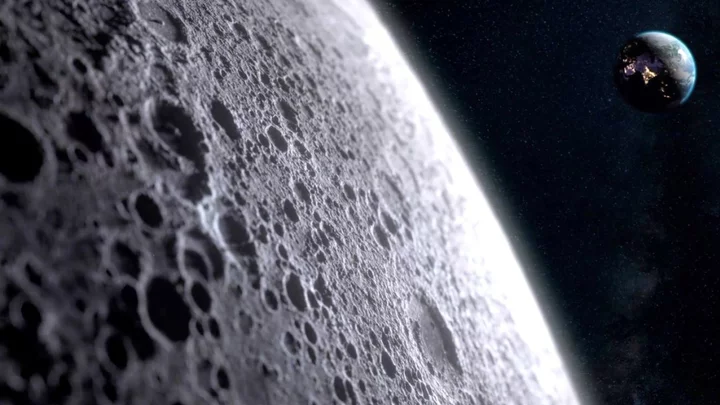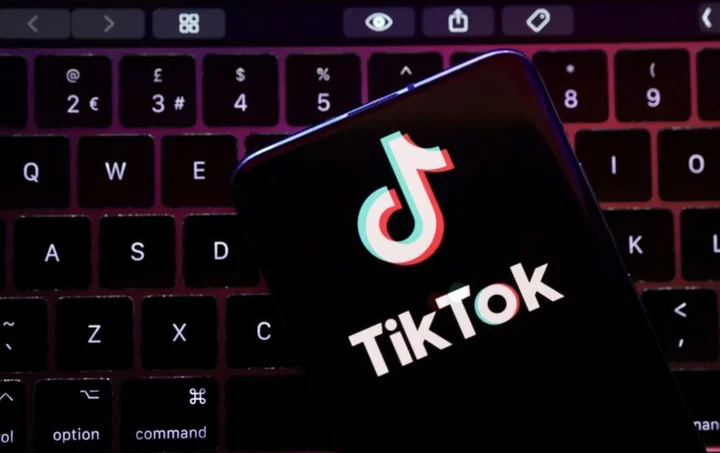
Microsoft takes over Activision Blizzard: Everything you need to know about $69bn deal for Call of Duty maker
After nearly two years and $69 billion, Microsoft’s purchase of Activision Blizzard is finally complete. The Xbox maker and the game developer are joining together in the biggest purchase in gaming history. It is a vast business undertaking that will define the future of the two companies and the gaming industry more broadly. But what will it actually mean for the gamers who use Microsoft’s platforms and play Activision’s games – as well as those that don’t? What happened in the deal? Microsoft first announced that it wanted to buy Activision Blizzard in January last year. Microsoft makes the Xbox and Activision Blizzard makes many of the worlds biggest games – it is often associated with Call of Duty, but also makes World Of Warcraft, Overwatch and mobile giant Candy Crush, and more. In the time since, the deal has been hit by opposition from rivals, primarily PlayStation maker Sony, and has been undergoing scrutiny from regulators, who worried that it would give Microsoft too much power in the gaming market, and harm players as a result. Regulators across the world expressed those reservations, and in some cases required Microsoft to make changes to the deal. Chief among those changes were Microsoft’s decision to give French gaming company Ubisoft the rights to distribute Activision games in the cloud. This was a response to concerns from the UK’s Competition and Markets Authority, which expressed concern specifically that the deal would give Microsoft too much power over cloud gaming. But there were a host of less dramatic and expensive commitments. That included signing deals with other companies such as Sony and Nintendo to commit to keep Call of Duty games on their platforms. What will it mean for Xbox players? At least initially, the biggest consequences of the deal are likely to be for Xbox’s Game Pass, the subscription platform that allows players to download and play games in return for a monthly fee. More Activision games are expected to come to that platform as a result of the acquisition. But even that won’t happen straight away, at least with all games. Activision said in a statement this week – before the deal closed – that its big titles won’t be coming to Game Pass this year, and has not made any commitments about which games will do so or when. “While we do not have plans to put Modern Warfare III or Diablo IV into Game Pass this year, once the deal closes, we expect to start working with Xbox to bring our titles to more players around the world,” Activision wrote in a tweet. “And we anticipate that we would begin adding games into Game Pass sometime in the course of next year.” What will it mean for gamers on other platforms? Much of the discussion with regulators has been about this question. And many of the concessions that Microsoft gave over the deal were done with the aim of ensuring that the answer is: not that much, at least at first. Xbox has committed to keep making its games available on other platforms such as PlayStation and Nintendo Switch, as well as on cloud platforms. And Xbox chief Phil Spencer echoed that commitment in the announcement that the deal was completed. “Whether you play on Xbox, PlayStation, Nintendo, PC or mobile, you are welcome here - and will remain welcome, even if Xbox isn’t where you play your favourite franchise. Because when everyone plays, we all win,” he wrote. But the bigger question might be about new games, especially those that come out after the initial commitments are over. Microsoft has committed to keep Call of Duty on rival platforms for 10 years, for instance – but things could change in the years after that, and with other, new games. When Microsoft bought another game developer Bethesda in 2020, for instance, there were questions over what it would mean for players on other platforms, and whether its games would be exclusive to Microsoft. Its most recent game Starcraft was available only on the Xbox and PC, and the upcoming Elder Scrolls VI is likely to be the same. Read More Nasa launches Psyche mission to study an ancient metal asteroid Microsoft buys Call of Duty developer in biggest deal in gaming history Microsoft gets go-ahead to buy Call of Duty maker Activision Nasa launches Psyche mission to study an ancient metal asteroid Microsoft buys Call of Duty developer in biggest deal in gaming history Microsoft gets go-ahead to buy Call of Duty maker Activision
2023-10-13 23:15

A hidden underground ocean could be causing ‘slow-motion' earthquakes
Scientists think they could have found the cause of a series of “slow-motion” earthquakes that have shaken New Zealand in recent years – a hidden ocean which sits two miles beneath the sea floor. The water was revealed as part of a giant volcanic area formed about 125 million years ago, when an eruption forced a plume of lava bigger than the US to the surface of the Earth. Researchers found the region by towing 3D seismic sensors behind a boat to build up an image of the ancient volcanic area. There, they found thick, layered sediments around long-buried volcanoes which contained much more water than expected. Andrew Gase, from the University of Texas Institute for Geophysics, who carried out the research, said: “Normal ocean crust, once it gets to be about seven or 10 million years old should contain much less water.” The ocean crust scanned by researchers was 10 times as old as this – but water made up nearly half its volume. The tectonic fault line which runs through New Zealand is known for producing slow-motion earthquakes, also known as slow slip events. During one of these, the energy from an earthquake gets released over days or months, often causing little or no harm to people. Scientists don’t know why they happen more at some faults than at others, but they are thought to be linked to buried water. Finding this new area of water at the fault line which creates so many slip events could provide an explanation. Gase said: “We can't yet see deep enough to know exactly the effect on the fault, but we can see that the amount of water that's going down here is actually much higher than normal.” If researchers can work out how the water reserves affect slip events – possibly by dampening them – they could, in turn, understand normal earthquakes better. Scientists also think underground water pressure could play a key part in creating conditions that release tectonic stress via slow slip earthquakes. As a result, Gase said scientists should drill even deeper to find out where the water ends up. Sign up to our free Indy100 weekly newsletter Have your say in our news democracy. Click the upvote icon at the top of the page to help raise this article through the indy100 rankings.
2023-10-13 22:58

Instagram has made an AI Kendall Jenner and it's scarily realistic
An AI version of Kendall Jenner is going viral after it was launched by Meta as part of Instagram introducing the future of technology on the app. Known as 'Billie' (@yoursisbillie), it's thought the Keeping Up With The Kardashians star was paid 'millions' to lend her face and voice to the account, which offers advice to fans - and it's near-impossible to tell it's not real. "I don't like this, I don't like where the world is heading, I'm not gonna support this," one terrified user wrote in the comments. Sign up to our free Indy100 weekly newsletter
2023-10-13 21:56

Microsoft buys Call of Duty developer in biggest deal in gaming history
Microsoft has completed its deal to buy Call of Duty developer Activision Blizzard in the biggest deal in gaming history. The $68.7 billion acquisition means the Xbox maker now owns games such as World of Warcraft and Diablo, as well as the Call of Duty series. Microsoft first announced the deal at the start of 2022. Since then it has faced intense scrutiny from regulators around the world – but the final of those investigations, from the UK’s Competition and Markets Authority, closed earlier on Friday. The process has forced Microsoft to make public commitments that its games will still be available on other platforms, such as PlayStation and the Nintendo Switch. “As one team, we’ll learn, innovate, and continue to deliver on our promise to bring the joy and community of gaming to more people,” said Xbox boss Phil Spencer. “We’ll do this in a culture that strives to empower everyone to do their best work, where all people are welcome, and is centered on our ongoing commitment of Gaming for Everyone. “We are intentional about inclusion in everything we do at Xbox – from our team to the products we make and the stories we tell, to the way our players interact and engage as a wider gaming community.” Microsoft has said that the deal will bring Activision’s games alongside its first-party offerings, including adding its titles to Xbox’s Game Pass subscription service. “Together, we’ll create new worlds and stories, bring your favourite games to more places so more players can join in, and we’ll engage with and delight players in new, innovative ways in the places they love to play including mobile, cloud streaming and more,” Mr Spencer said in the announcement. Read More Microsoft gets go-ahead to buy Call of Duty maker Activision Google is about to ditch passwords forever EU to investigate X’s handling of disinformation over Hamas attack on Israel
2023-10-13 21:23

'All hands on deck.' How Israel's vital tech sector is navigating the war
Israel's vast tech sector has seen its fair share of crises, from financial downturns and the Covid-19 pandemic to periodic flare-ups in the Israeli-Palestinian conflict. Each time, the industry has bounced back, demonstrating why the country of just 9 million people is known as the world's "startup nation."
2023-10-13 20:54

Low-flying helicopter sparks crazy crocodile orgy in Australia
Hundreds of crocodiles in Australia were recently sent into a sex frenzy when a low-flying Chinook helicopter passed overhead. Ranchers from the Koorana Crocodile Farm in Queensland, which houses more than 3,000 crocodiles, said many of their residents became aroused after the flyby. John Lever, owner of the farm, said pilots use it as a marker point in their flights. When a pilot flew low so their passengers could take a picture of the crocodiles, the reptiles were whipped up into a frenzy. He said: “All of the big males got up and roared and bellowed up at the sky, and then after the helicopters left they mated like mad. “There's something about the sonic waves that really gets them stirred up.” As it turns out, thunderstorms regularly act as an aphrodisiac to crocodiles. If the reptiles mate during storm season, their babies are more likely to hatch in a non-thunderstorm season, meaning they don’t drown in flood water. “The crocodiles start vocalising to each other [when a storm is coming],” Lever said. “They don't have a very sophisticated voice box, but they vibrate their windpipes to send messages through the water.” That may explain why the helicopter caused such an aroused response – they thought it was a megastorm. Herpetologist Mark O'Shea from the University of Wolverhampton told LiveScience: “Chinooks may artificially recreate the sound of the start of a thunderstorm.” Another possible explanation is that the movements in the water or downward wind caused by the choppers could trick them into thinking there is a change of atmospheric pressure, like when a storm is approaching. “I imagine that the downdraft from a large, heavy helicopter would create a change in pressure that the [sensory organs] on crocodile skin can detect. “Dropping barometric pressure from a downdraft may resemble the change in pressure from a storm.” Sign up to our free Indy100 weekly newsletter Have your say in our news democracy. Click the upvote icon at the top of the page to help raise this article through the indy100 rankings.
2023-10-13 20:52

Scientists could use lunar dust to make roads on the moon
Scientists have come up with a potential solution to deal with dust on the moon which makes conducting research tricky. Dust erodes space suits, clogs machinery, interferes with scientific instruments and makes moving around on the surface difficult. But they reckon moon dust could be melted using a giant lens developed by the European Space Agency to create solid roads and landing areas. Using a fine-grained material called EAC-1A, developed as a substitute for lunar soil, scientists used a 50mm diameter laser beam to heat the dust to about 1,600C and melt it. Then they traced out bendy triangle shapes, which could be interlocked to create solid surfaces across large areas of lunar soil to be used as road. However it would take about 100 days to create a 10 x 10m landing spot so it is not a quick fix. To make matters worse, the lens needed for the laser to work would be difficult to transport from Earth and could also get dust in it which may reduce its functionality. “You might think: ‘Streets on the moon, who needs that?’” said Prof Jens Günster, of the Federal Institute of Materials Research and Testing in Berlin and co-author of a report on the possible solution. “But in fact it’s a kind of depressing demand [even] early on. It’s very loose material, there’s no atmosphere, gravity is weak, so the dust gets everywhere. It contaminates not only your equipment but other nations’. No one would be happy to be covered in dust from another rocket." Dust has blighted previous missions, such as the Surveyor 3 spacecraft (damaged by dust kicked up by the Apollo 12 landing), and overcoming this challenge is a priority for Nasa, which aims to establish a permanent lunar outpost. Transporting building materials to the moon would be too expensive, so there is a need for unconventional solutions. “You need to use what’s there and that’s simply loose dust,” said Günster. The findings are published in the journal Scientific Reports. Sign up to our free Indy100 weekly newsletter Have your say in our news democracy. Click the upvote icon at the top of the page to help raise this article through the indy100 rankings.
2023-10-13 20:15

EU opens an investigation into Elon Musk's X over 'disinformation'
The EU has opened an investigation into Elon Musk's X over the possible spread of terrorist and violent content, and hate speech, after Hamas' attack on Israel. The EU's industry chief, Thierry Breton, confirmed on Thursday the bloc had sent Twitter/X a "formal request for information" to determine whether the platform was complying with the Digital Services Act (DSA) - a law designed to protect users of big tech platforms which came into effect November, as misinformation about the conflict between Israel and Hamas spreads on social media. In a statement on Thursday, the EU said “the European Commission services sent to X a formal request for information under the Digital Services Act (DSA)”. “This request follows indications received by the Commission services of the alleged spreading of illegal content and disinformation, in particular the spreading of terrorist and violent content and hate speech. The request addresses compliance with other provisions of the DSA as well.” In his letter to Musk, Breton said "violent and terrorist content" had not been taken down from X, despite warnings. Breton did not give details on the disinformation he was referring to in the letter, but said instances of "fake and manipulated images and facts" were widely reported on the social media platform. Responding on X, Musk said: "Our policy is that everything is open and transparent, an approach that I know the EU supports. "Please list the violations you allude to on X, so that the public can see them." X chief executive Linda Yaccarino also said earlier on Thursday the platform had removed hundreds of Hamas-affiliated accounts and taken action to remove or label tens of thousands of pieces of content since Saturday's attack. Sign up to our free Indy100 weekly newsletter Have your say in our news democracy. Click the upvote icon at the top of the page to help raise this article through the indy100 rankings.
2023-10-13 18:29

A scientist may have just proven that we all live inside a computer simulation
“The Matrix is everywhere. It is all around us. Even now in this very room." So says Laurence Fishburne’s Morpheus in sci-fi classic ‘The Matrix’ as he offers Keanu Reeves’s Neo the choice to find out just how “deep the rabbit hole goes”. Now, just as Neo discovered that the "life" he'd been living was little more than an algorithmic construct, scientists and philosophers are arguing that we could be stuck inside a simulation ourselves. In a paper published earlier this month, physicist Melvin Vopson, of the University of Portsmouth, offered scientific evidence for a philosophical theory known as the simulation hypothesis. This, in a nutshell, posits that the entire universe and our objective reality are just super-advanced virtual reality illusions. Elon Musk is among the well-known fans of the theory, which – as Dr Vopson notes in his paper – has been “gaining traction in scientific circles as well as in the entertainment industry”. The university lecturer also pointed out that recent developments in a branch of science known as information physics “appear to support this possibility”. Information physics suggests that physical reality is made up of bits of information. However, Dr Vopson has gone further and is working to prove that information has a physical mass and is a fundamental building block of the universe. He even claims that information could be the mysterious dark matter that makes up almost a third of the universe. In previous research, the physicist proposed that all elementary particles (the smallest known building blocks in the universe), store information about themselves, much like DNA in humans. Then, in 2022, he discovered a new law of physics, christened the second law of infodynamics, which states that entropy – the degree of randomness or disorder – within an isolated information system either remains constant or decreases over time. In other words, the system becomes less and less chaotic, implying that there is some kind of mechanism governing it rather than random chance. “I knew then that this revelation had far-reaching implications across various scientific disciplines,” Dr Vopson said in a statement released by the University of Portsmouth. “What I wanted to do next is put the law to the test and see if it could further support the simulation hypothesis by moving it on from the philosophical realm to mainstream science.” Is the Universe a Simulation? | Melvin Vopson www.youtube.com Dr Vopson employed the law in a range of different fields, including genetics, cosmology and even symmetry. Here, he found that the abundance of symmetry in the Universe (think snowflakes and facial structures) could be explained by the second law of infodynamics. "Symmetry principles play an important role with respect to the laws of nature, but until now there has been little explanation as to why that could be,” he said. “My findings demonstrate that high symmetry corresponds to the lowest information entropy state, potentially explaining nature's inclination towards it." Again, put simply, nature prefers things to be as well-ordered as possible. He continued: “This approach, where excess information is removed, resembles the process of a computer deleting or compressing waste code to save storage space and optimise power consumption.” As a result, this “supports the idea that we’re living in a simulation.” Dr Vopson is serious about this idea and, last year, even launched a crowdfunding campaign to test it. At the time, he announced that he had designed an experiment to determine whether we are all just characters in an advanced virtual world. “There is a growing community out there looking seriously at the possibility that information is more fundamental to everything than we think,” he said in a statement released back in December. “If information is a key component of everything in the universe, it would make sense that a vast computer somewhere is in control. “Assuming the universe is indeed a simulation, then it must contain a lot of information bits hidden everywhere around us. I’ve devised an experiment that proposes a way of extracting this information to prove it’s there.” His proposed experiment is based on his conclusion that information is physical and that elementary particles have a DNA of information about themselves. He posited that the information in an elementary particle could be detected and measured by using particle-antiparticle collision. “We can measure the information content of a particle by erasing it. If we delete the information from the particles, we can then look at what’s left,” he said in the December statement. “This experiment is highly achievable with our existing tools, and I’m hoping the crowdfunding site will help us achieve it.” And whilst the crowdfunder closed well before reaching its proposed £185,000 target, Dr Vopson still hopes to carry out the ambitious test. Following his most recent paper, he suggested the experiment had the power to confirm the “fifth state of matter in the universe” and “change physics as we know it.” Sign up for our free Indy100 weekly newsletter Have your say in our news democracy. Click the upvote icon at the top of the page to help raise this article through the indy100 rankings.
2023-10-13 16:28

EU opens investigation into X’s handling of disinformation over Hamas attack on Israel
The EU has launched an investigation into Elon Musk’s X – formerly known as Twitter — over its alleged spreading of disinformation, “in particular the spreading of terrorist and violent content and hate speech” over the recent Hamas attack on Israel. It will be the first inquiry conducted in relation to the European Union’s recently implemented tech regulations and will also scrutinise the procedures at X for managing complaints. Earlier, X announced that it removed numerous accounts associated with Hamas from its platform. In a statement on Thursday, the EU said that “the European Commission services sent to X a formal request for information under the Digital Services Act (DSA)”. “This request follows indications received by the Commission services of the alleged spreading of illegal content and disinformation, in particular the spreading of terrorist and violent content and hate speech. The request addresses compliance with other provisions of the DSA as well.” The EU’s industry chief Thierry Breton clashed online with Mr Musk after telling him in a letter that “violent and terrorist content” had not been taken down from X despite warnings. Mr Breton refrained from giving more specific details about the disinformation mentioned in the letter. However, he noted that instances of “fake and manipulated images and facts” were widely documented on the social media platform. Mr Musk hit back on X saying: “Our policy is that everything is open and transparent, an approach that I know the EU supports. Please list the violations you allude to on X, so that the public can see them.” TikTok and Meta have also received warnings from the European Union for their alleged failures in addressing disinformation on their social media platforms. The EU is requesting that X provide information related to its investigation by 18 October. Mr Breton had initially written that Mr Musk should respond within 24 hours. Mr Breton also reminded Mr Musk that the DSA “sets very precise obligations regarding content moderation,” and that X needs “to be very transparent and clear on what content is permitted under your terms and consistently and diligently enforce your own policies”. He added that he expects X “to be in contact with the relevant law enforcement authorities and Europol, and ensure that you respond promptly to their requests”. “I remind you that following the opening of a potential investigation and a finding of non-compliance, penalties can be imposed,” Mr Breton wrote. Linda Yaccarino, CEO of X, announced on Thursday that the platform had taken action to remove hundreds of Hamas-affiliated accounts and had also initiated steps to either remove or label tens of thousands of pieces of content since the attack that occurred on Saturday. Read More Israel-Hamas war live: UN alarmed by north Gaza evacuation order as IDF ‘fires white phosphorus on Strip’ Hamas’s hostages: What to know about Israelis abducted by the militant group France has banned pro-Palestinian protests and vowed to protect Jews from resurgent antisemitism EU asks Elon Musk to ‘walk the talk’ on X/Twitter disinformation over Hamas attack Viral WhatsApp warning of cyberattack targeting Jewish people is fake Microsoft revised deal to buy Call of Duty maker Activision cleared by watchdog
2023-10-13 15:59

Microsoft revised deal to buy Call of Duty maker Activision cleared by watchdog
Microsoft has been given approval to buy Call of Duty developer Activision, clearing the way for one of the biggest ever tech deals. The Competition and Markets Authority (CMA) said the Xbox owner could go ahead with the takeover after agreeing to buy Activision without cloud gaming rights. It puts an end to a half-year long battle between the watchdog and Microsoft, having moved to block the deal in April. But businesses and their advisors should be in no doubt that the tactics employed by Microsoft are no way to engage with the CMA Sarah Cardell, CMA's chief executive The new deal, which was initially worth 69 billion US dollars (£56.6 billion at the current exchange rate), will stop Microsoft from having a “stranglehold” over the UK cloud gaming market, the CMA said. The regulator said it would preserve competitive prices for gamers and make sure consumers get more choice. Assassin’s Creed video game maker Ubisoft is set to buy Activision’s cloud gaming rights instead. But the CMA criticised Microsoft for “dragging out” proceedings during its investigation into the merger. Sarah Cardell, the CMA’s chief executive, said: “With the sale of Activision’s cloud streaming rights to Ubisoft, we’ve made sure Microsoft can’t have a stranglehold over this important and rapidly developing market. “But businesses and their advisors should be in no doubt that the tactics employed by Microsoft are no way to engage with the CMA. “Microsoft had the chance to restructure during our initial investigation but instead continued to insist on a package of measures that we told them simply wouldn’t work. “Dragging out proceedings in this way only wastes time and money.” Brad Smith, the president of Microsoft, said the group is “grateful” for the decision to approve the acquisition which he believes will “benefit players and the gaming industry worldwide”. Additional reporting by agencies Read More Incels using TikTok to spread ‘hateful beliefs’, research suggests Duke and Duchess of Sussex call for overhaul of social media Google to trial AI in UK traffic light systems to reduce stop-and-go emissions Broadband customers face £150 hikes because of ‘outrageous’ rises – Which? Rise of AI chatbots ‘worrying’ after man urged to kill Queen, psychologist warns William hails ‘amazing’ eco-friendly start-up businesses
2023-10-13 15:28

TikTok to take proactive steps to address issues in Malaysia
KUALA LUMPUR Short video app TikTok is committed to taking proactive measures to address issues raised by Malaysia,
2023-10-13 11:57
